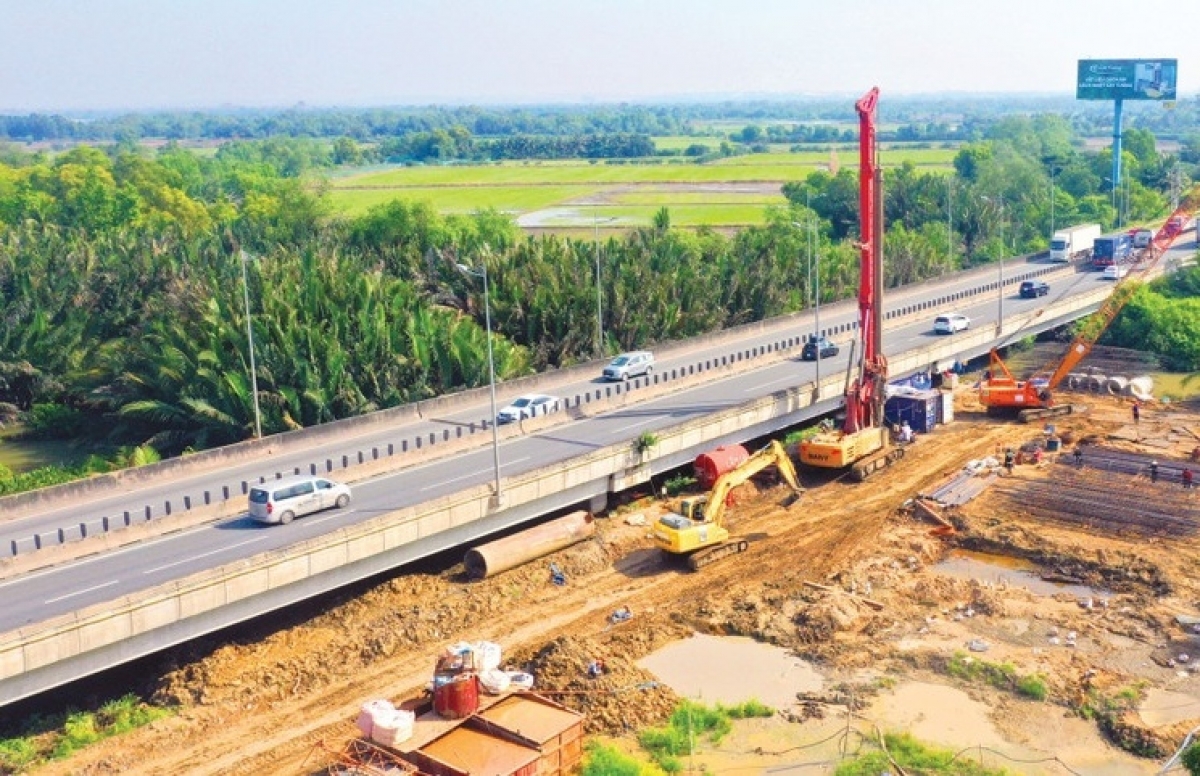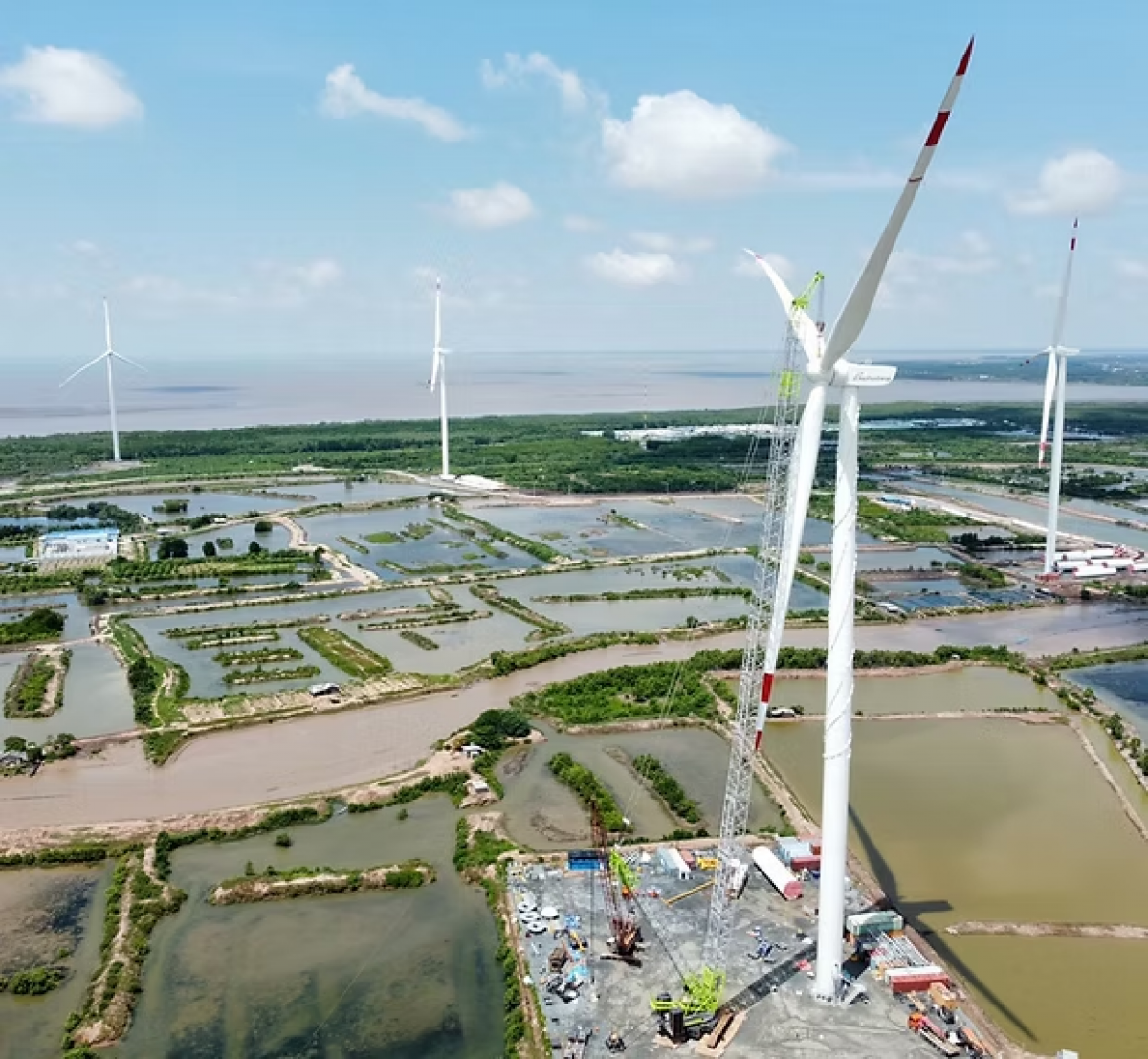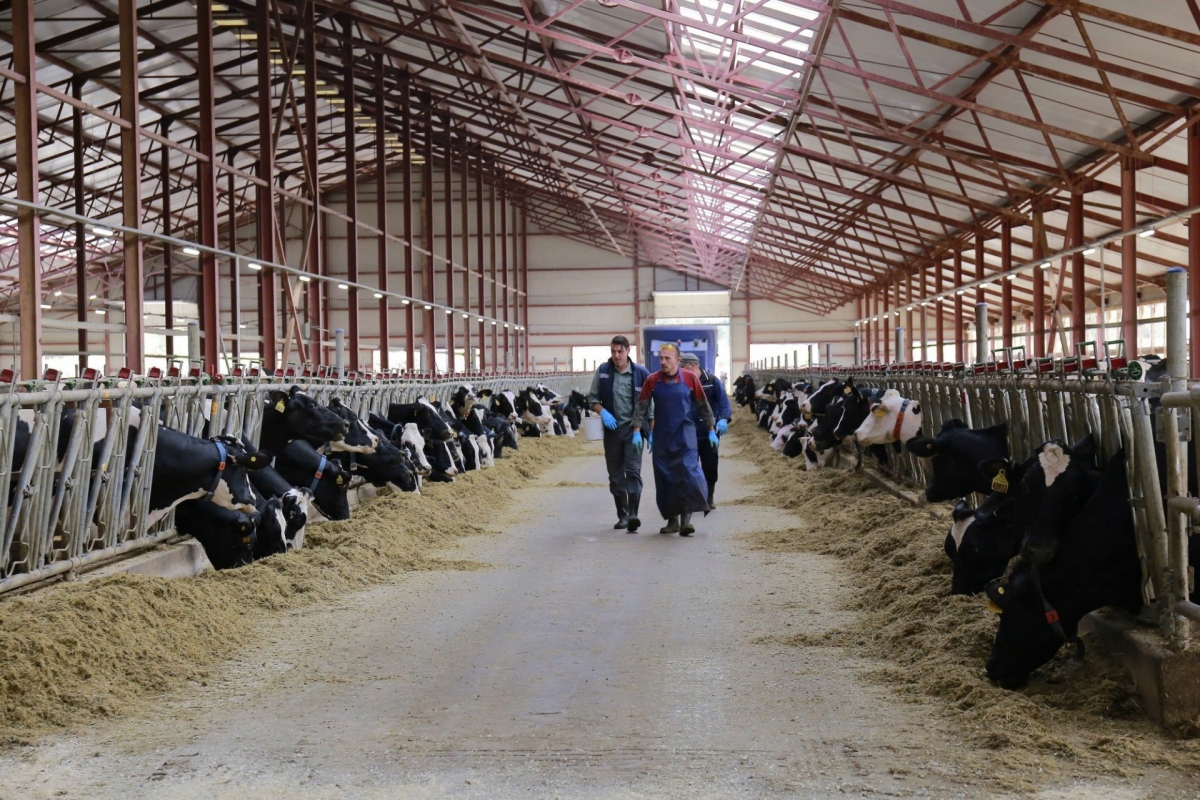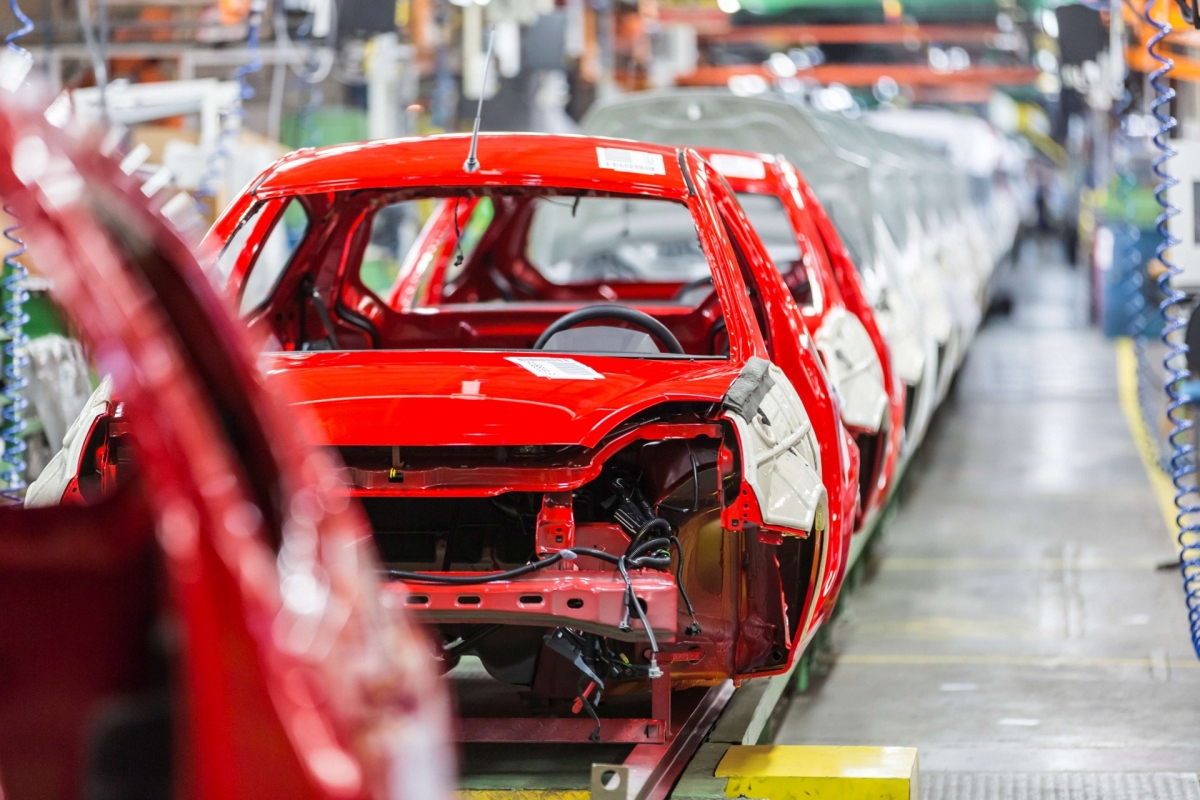INTERNATIONAL INVESTMENT
AND PORTAL
 French investors line up for metro projects, Photo: Ta Hai
French investors line up for metro projects, Photo: Ta Hai
French Ambassador to Vietnam Olivier Brochet last week said that a number of French companies were looking for more opportunities in infrastructure in Vietnam, notably in the railway sector, where they have cultivated successful projects.
“French companies are accompanying Vietnam in the transition towards a carbon-free economy through providing the country with the world’s top-quality technical solutions. They want to engage more in more metro lines in the country,” Brochet said, referring to the August commencement of commercial operations on the elevated section of the Nhon-Hanoi Station metro line No.3.
“This project acts as a symbol of the Vietnam-France cooperation in sustainable urban transport,” the ambassador said. “The inauguration of the section demonstrates the capacity of the Vietnamese and French workers in implementing such an ambitious railway venture.”
The 8km elevated section, running from Nhon to Cau Giay areas in Hanoi, helps ease congestion in the capital. The underground part, stretching from Kim Ma street to the front of Hanoi Railway Station with four underground stations and one underground ramp, will operate by the end of 2027.
The Nhon-Hanoi Station metro line has been developed with concessional loans of €514 million ($566.5 million) from France. It also received financial support from the Asian Development Bank and the European Investment Bank. The project has been carried out with technologies and expertise from leading French corporations in the field, including Alstom, Thales, Colas Rail, and RATP Smart Systems.
The line will be expanded with an additional 8km underground part running from Tran Hung Dao street to Hoang Mai district.
In May, Vietnam’s Ministry of Planning and Investment and the French Development Agency (AFD) inked a grant deal for a €10.4 million ($11.46 million) technical assistance project on preparation of the Hanoi Station-Hoang Mai section and supporting the research and construction of an integrated urban transport system for urban railways. This will use non-refundable aid from the European Union, expected to be completed in 2026.
The EU and the AFD will support Vietnam in materialising its climate commitments of reducing emissions, implementing energy transition, responding to climate change and improving people’s lives.
According to the French Embassy to Vietnam, this project also aims to develop the urban railway system, increase multi-modal connectivity and enhance mobility for people in the city, while gradually decreasing the volume of personal vehicles in the inner-city area and cutting air pollution.
“With great experiences gained from the No.3 metro line, French companies stand ready to engage in more similar initiatives in Vietnam, helping the country reduce carbon emissions,” Ambassador Brochet told VIR. “It is estimated that the transport sector is responsible for 25 per cent of emissions in the country.”
A representative from Alstom in Vietnam said that the company had been operating in the country for over three decades. With metro line 3, it has partnered with Colas Rail and Hitachi Rail to provide its first integrated metro system in the nation, which came into commercial in August.
“Alstom is responsible for supplying and integrating the metro system, including 10 metropolis trains and the Urbalis 400 signal system, and the system for supplying electricity and depot equipment along the other partners. We stand ready to participate more in the upcoming projects in Vietnam,” the representative said last week.
Eric Alix, general director of RATP Smart Systems, a subsidiary of the world’s third-largest urban transport operator RATP, revealed that it is among nine bidding packages for metro line 3 from Hanoi Station to Nhon. It supplies 42 automatic ticket selling machines, around 140 ticket checking points, and over 20 ticket selling machines at the counters, and one server.
“Our added values in this is that we can provide Hanoi with our high-profile expertise in ticket management to bring about a smart solution to connect with other public transport means,” Alix said. “We hope to continue carrying out our solutions in other projects not only in Hanoi, but also in other localities in Vietnam.”
Towards 2030, Hanoi plans to construct nearly 97km of metro lines, with an investment of $14.6 billion. The following five years will see the construction of an additional 300km, at an estimated capital of about $22.5 billion.
It is estimated that the total cost needed for Hanoi’s metro system by 2035 will be as much as $37 billion, with the capital city expecting to secure more than $28 billion over the next decade. By 2035, Hanoi will need close to $9 billion in support from the state coffers.
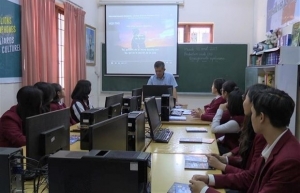 Vocational training - new direction in Vietnam-France decentralised cooperation
Vocational training - new direction in Vietnam-France decentralised cooperation
Vietnam and France have witnessed win-win cooperation in vocational training, and partnerships among localities of the two nations in the field are being seen as a new direction in decentralised cooperation between the two countries.
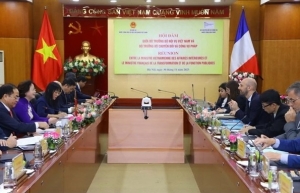 Vietnam, France cooperate in digital transformation, public service reform
Vietnam, France cooperate in digital transformation, public service reform
Vietnamese Minister of Home Affairs Pham Thi Thanh Tra held talks with French Minister of Public Transformation and Service Stanislas Guérini in Hanoi on November 30.
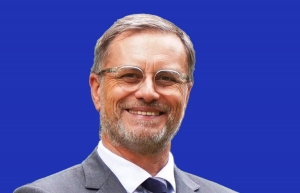 Refinements will help boost ties with France
Refinements will help boost ties with France
Vietnam and France are set to boost their trade and investment ties. French Ambassador to Vietnam Olivier Brochet spoke to VIR’s Thanh Tung in an exclusive interview about the cooperation drive, with Vietnam becoming an increasingly attractive market for French investors.


